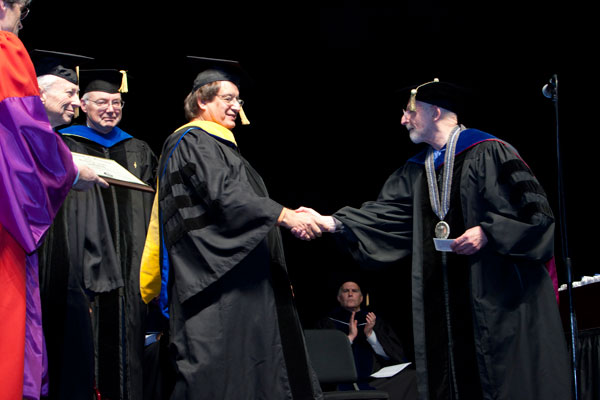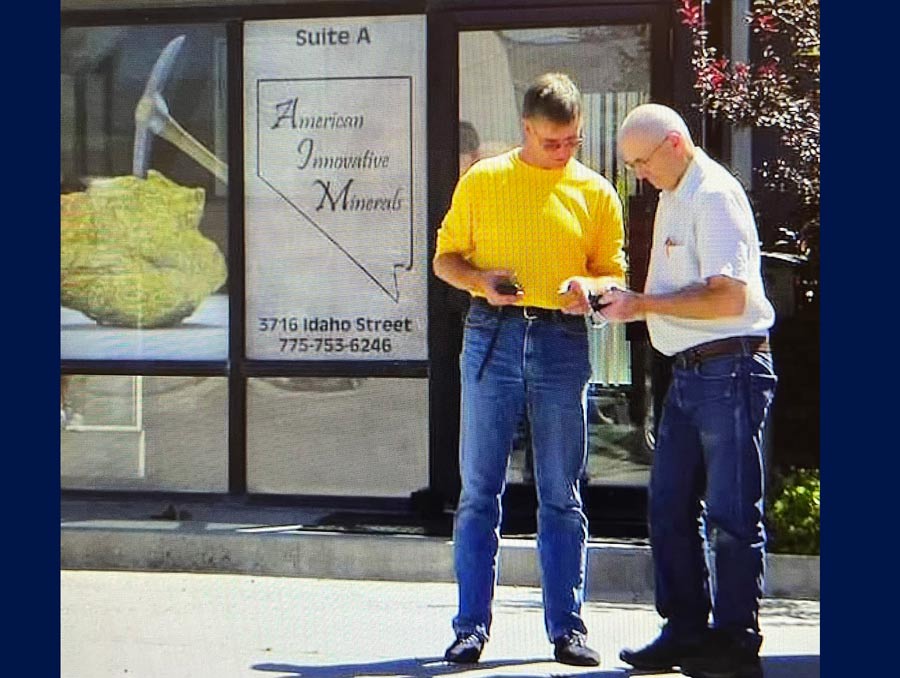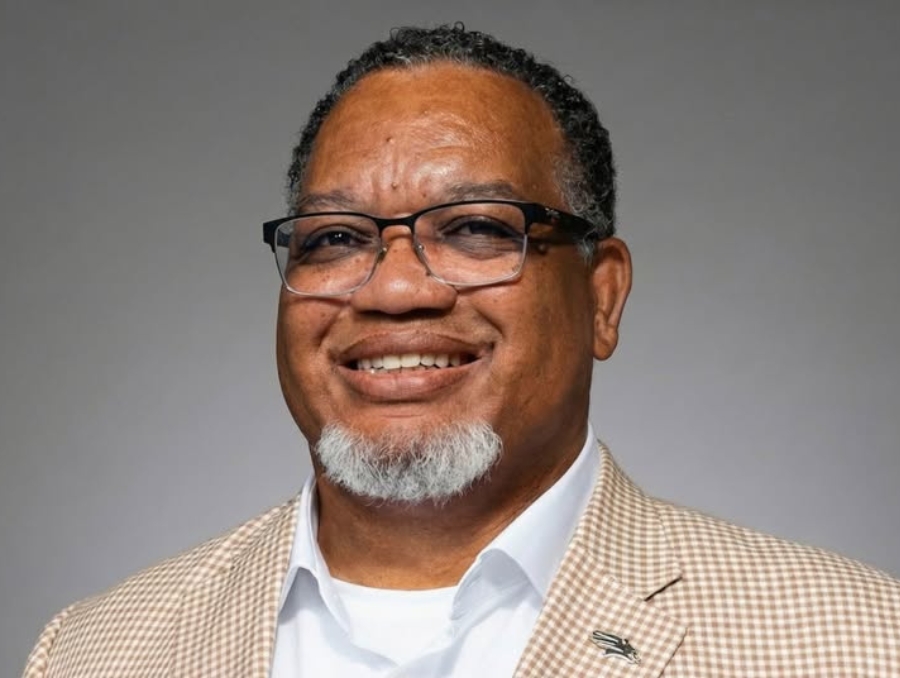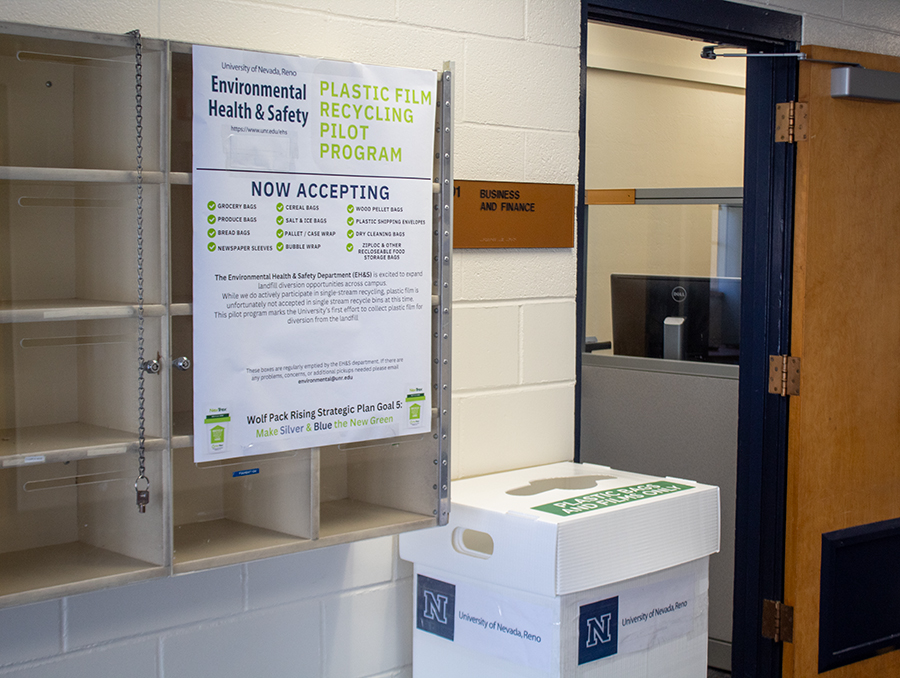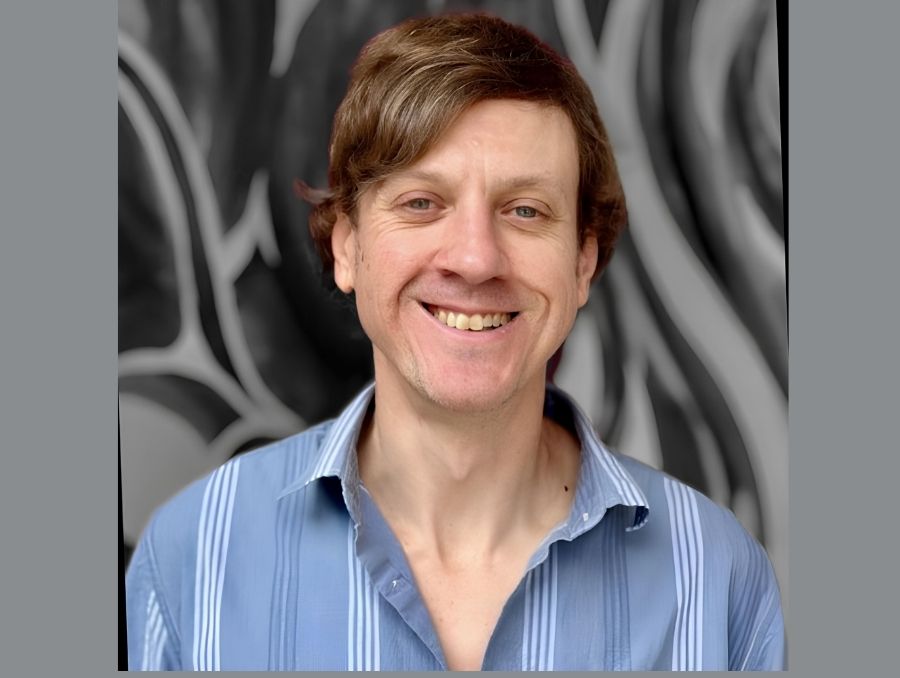In his introduction of the Winter Commencement keynote speaker on Saturday, Dec. 4 at Lawlor Events Center, University President Milt Glick said Richard Tapia is "driven by soul as much as he is driven by science and mathematics."
Tapia, the first Hispanic elected to the National Academy of Engineering, is a university professor at Rice University in Houston, Texas - one of only six to have been bestowed the title - and is internationally known for his work in the computational and mathematical sciences. He is also a renowned diversity advocate.
Yet he focused much of his Commencement address on his personal story. Tapia married his wife, an outstanding dancer, in his sophomore year at UCLA. His daughter Circee was born his junior year and his son Richard was born the year Tapia received his Ph.D. from UCLA. With his doctorate in hand, Tapia says, "The four of us went off ... to conquer the world."
In the ensuing years his wife Jean was diagnosed with multiple sclerosis and myasthenia gravis. "She had to give up her studio and navigate life from a wheelchair," Tapia said.
Three years later, his daughter Circee was killed in an automobile accident.
"I share this personal story to tell you this: when you encounter obstacles and adversity, learn to look both ways," Tapia said. "Your challenge is to handle adversity. Prosperity is quite easy to handle. Remember that failure is a part of every successful person's life.
"True success is not the education that you have, but what you do with this education. It is not the hand that you are dealt, but how you play it. At each stage of your life and career, continue to dream and work to make your dreams come true, but learn to cope and still enjoy life if they do not come true."
Tapia went on to recount his four-decade commitment to addressing diversity issues. At Rice, Tapia has directed or co-directed more underrepresented minority and women doctoral recipients in science and engineering than anyone in the country, and has led several programs that have brought recognition to the university's commitment to diversity. In 1996, President Bill Clinton appointed Tapia to the National Science Board, and from 2001 to 2004 he chaired the National Research Council's Board on Higher Education and the Workforce. Two professional conferences have been named in his honor: Richard Tapia Celebration of Diversity in Computing conference and the Blackwell-Tapia Conference, whose founders described Tapia as a seminal figure who inspired a generation of African-American, Native American and Latino/Latina students to pursue careers in mathematics.
Despite the progress he has seen, Tapia acknowledged that violence, drugs, disrespect, hate and a "class system that follows along racial and ethnic lines" remain as characteristics of the times.
"You may say that we have left you with these problems, and I would answer that this is true," he said. "But we can't re-deal the hand. Your challenge is to play well what you have been dealt. The future of the world's scientific and societal health is in your hands.
"It is not someone else's job; it is now your job."
Tapia was presented one of two honorary doctorate degrees awarded by the University. A second honorary doctorate was presented to Procter R. Hug Jr., a native of Reno. Hug graduated from the University of Nevada - where he was student body president, captain of the track team and elected to Phi Kappa Phi - in 1953. He served two years as an officer in the U.S. Navy, then went on to earn his law degree from Stanford Law School, return to Reno and go into private practice. In 1977, Hug was appointed to the Ninth Circuit Court of Appeals and was named chief judge of the Ninth Circuit in 1996, a position he held for five years. Hug continues to be an active part of the Ninth Circuit, serving and hearing cases as a senior judge.
Hug was elected to the Board of Regents of the University of Nevada System for three terms. He was awarded the Distinguished Nevadan Award by the University of Nevada in 1982 and the Alumnus of the Year Award in 1988. He and his wife Barbara have been married 57 years and have three children: Cheryl Hug-English, currently interim dean of the University of Nevada School of Medicine; Procter James Hug; and Elyse Hug Pasha.
A total of 1,096 bachelor's degree candidates and 453 advanced degree certificates (master's and doctoral degrees and the education specialist certificate) were awarded Saturday, making this the largest number of winter graduates since the University first featured a Winter Commencement ceremony in 1992. The University awarded 1,467 degrees at the December 2009 ceremony.
